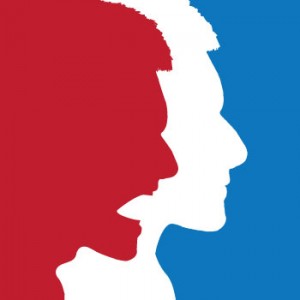 We are much less the creature that reasons than we are the creature that reacts.
We are much less the creature that reasons than we are the creature that reacts.
Roy Charles Henry
The much admired American philosopher Ralph Waldo Emerson placed a lot of faith in the human capacity for self-reliance. What he seemed to be unaware of was that there were two American “selves;” the self and the Self. The self would never become self-reliant because it was capable of very little awareness and spent most of its energy in reaction, in resisting rather than directing the creation of its experience, that is to say it had very little “agency.”
To emphasize how the same words mean different things in different contexts or paradigms we can examine Emerson’s beloved concept of self-reliance. In P-A Self-reliance means being totally independent of anything in the world of form having learned to trust our inner Wisdom. Notice the difference when Firmin De Brabander uses it in the context of American history.
“Thanks to a decades-old safety net, we have forgotten the trials of living without one. Thus, we can entertain nostalgia for a time when everyone pulled his own weight and was the master of his destiny. That time was a myth. And the notion of self-reliance is also a fallacy.” In short, as DeBrander at least partially realized, we sleepwalkers in America do not know where we are going or how to get there and we never have.
Freud in his model also felt that the self (ego) had very little autonomy. DeBrabander, an associate professor of philosophy at the Maryland Institute College of Art wrote: “There is a curious passage early in Freud’s “Ego and Id” where he remarks that the id behaves ‘as if’ it were unconscious. The phrase is puzzling, but the meaning is clear: the id is the secret driver of our desires, which animate our conscious life, but the ego does not recognize it as such. The ego—what we take to be our conscious autonomous self—is ignorant to [of] the agency of the id and sees itself in the driver’s seat instead. Freud offers this metaphor: the ego is like a man on horseback, struggling to contain the powerful beast beneath; to the extent that the ego succeeds in guiding this beast, it’s only by ‘transforming the id’s will into action as if it were its own.’”
What a rich paragraph! Now we must translate it into Simple Reality terms to separate truth from illusion. The id becomes the false self and the desires of the ego become the false-self survival strategy, the pursuit of plenty, pleasure and power. The dualistic worldview of P-B fuses Freud’s id and ego into our unconscious and reactive false self. Not being aware of the problems presented by a subconscious system of habits and an unconscious false self, we have little chance of making life-enhancing choices. Freud’s analysis of human behavior made him at least partially aware of our dilemma. “By Freud’s account, conscious autonomy is a charade, ‘We are lived,’ as he put it, and yet we don’t see it as such.”
“Men believe themselves free, he [Spinoza] said, merely because they are conscious of their volitions and appetites, but they are wholly determined.” We can speculate that Spinoza meant “determined” or controlled by the collective unconscious of their community and their own individual false-self survival strategy. In short, they are not “conscious” at all.
Spinoza was also an advocate of Oneness which didn’t set well with his 17th century fellow Christians. “… we are all just modes of one substance, ‘God or Nature,’ he called it, which is really the same thing. To be human, he argued, is to be party to a confounding existential illusion—that human individuals are independent agents—which exacts a heavy emotional and political toll on us. It is the source of anxiety, envy, anger—all the passions that torment our psyches—and the violence that ensues.”
Spinoza turns out to be among the most insightful of western philosophers. “If we should come to see our nature as it truly is, if we should see that no ‘individuals,’ properly speaking, exist at all, Spinoza maintained it would greatly benefit humankind … Understanding the interrelated nature of everyone and everything is the key to diminishing the passions and the havoc they wreak.” Do we have agency in P-B? Absolutely not! Do we have agency in P-A? Absolutely!
_____________________________________________________
References and notes are available for this essay.
Find a much more in-depth discussion in the Simple Reality Trilogy
by Roy Charles Henry:
Where Am I? Story – The First Great Question
Who Am I? Identity – The Second Great Question
Why Am I Here? Behavior – The Third Great Question


